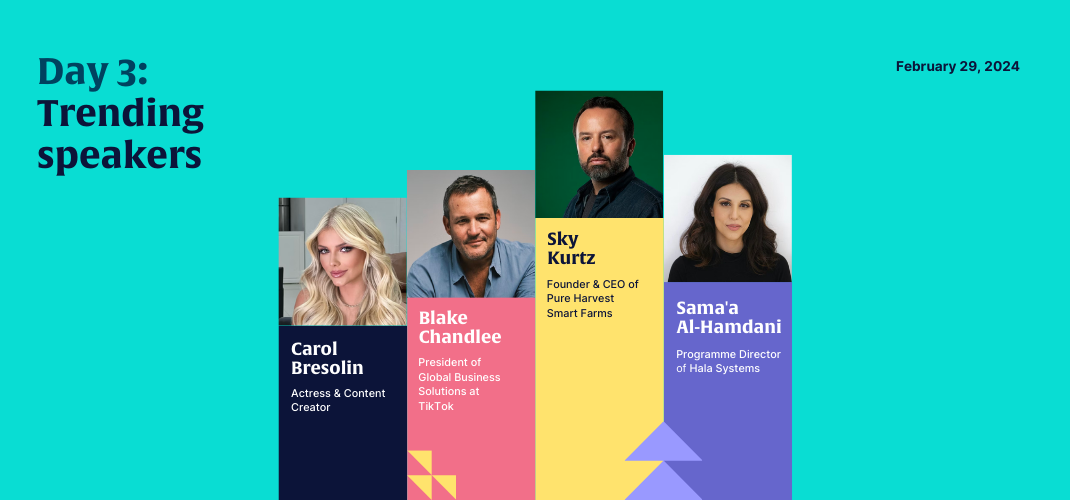
5 things you need to know about astronaut Sara Sabry

As we get ready for our first Web Summit Qatar, we’re excited to have Sara Sabry, astronaut as well as founder and CEO of non-profit Deep Space Initiative, join us on stage.
Sara made history on August 4, 2022 by becoming the first Egyptian to travel to space. This also made the astronaut the first Arab and African woman to leave the earth’s atmosphere. Here are five of this astronaut and founder’s achievements:
Completing a simulated moon mission
In 2021, Sara participated in a two-week moon mission simulation at the Poland-based LUNARES. Working as the crew’s medical officer, Sara therefore become Egypt’s first female analog astronaut (analog refers to the fact that the training is in a simulated environment). This intensive training prepared Sara for the rigours of space travel.
By completing the IIAS scientist-astronaut training programme during this time – a suborbital research qualification programme – Sara is now trained and qualified to do research in space and has research interests including mechatronics and bioastronautics.
Flying to space on a Blue Origin rocket
On August 4, 2022, Sara realised her dream of going into space after being launched aboard a New Shepard rocket on the NS-22 mission by Blue Origin (founded by Amazon’s Jeff Bezos).
The founder flew alongside five other crew members on the 10-minute journey that reached an altitude of 100 km, crossing what is known as the Karman line into outer space.
Gaining an impressive academic background
Sara earned a bachelor’s degree in mechanical engineering from the American University in Cairo, with a double minor in biology and chemistry.
The astronaut then obtained a master’s degree in biomedical engineering from the Polytechnic University of Milan, while researching AI applications for robot-assisted surgery. Currently, Sara is working towards a PhD in aerospace sciences at the University of North Dakota.
Founding a non-profit to make space more accessible
Deep Space Initiative aims to expand access and opportunities in the space industry through hands-on research and educational programmes.
The organisation works on three main areas: Conducting important space research, educating people inclusively, and building a worldwide community interested in space. Its goal is to make space exploration something everyone can be part of, breaking down barriers and encouraging people from all backgrounds to join in discovering the universe.
By encouraging diversity and representation, Sara hopes to spark a new generation of space scientists and astronauts.
Inspiring a new generation of Arab and African women
As the first Egyptian, and the first Arab and African woman in space, Sara has become a prominent role model. Both in Egypt and across the Arab world, many see the astronaut’s achievement as an inspiration.
Sara aims to motivate young people to chase big dreams. In an Instagram post before the Blue Origin mission, the astronaut said: “My ancestors have always dreamt big and achieved the impossible, and I plan on bringing that back.”
Check out some of the other inspiring speakers who will be joining us at Web Summit Qatar.
Main image of astronaut, and founder and CEO of Deep Space Initiative, Sara Sabry: Web Summit

